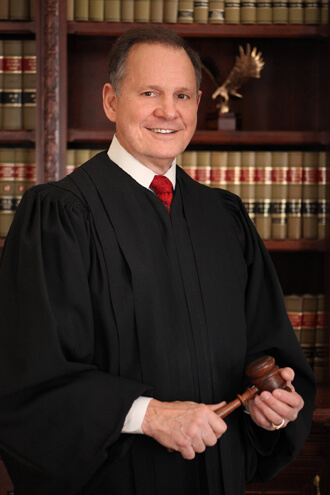The Ninth Circuit Court of Appeals, on February 10, announced it would not rehear a case decided last August by a three-judge panel that upheld a trial judge’s order that the Idaho Corrections Department provide gender confirmation surgery for a transgender inmate, Adree Edmo.
The State of Idaho had sought en banc review by an 11-member panel of the San Francisco-based Ninth Circuit. The panel that upheld the district court last August — which included two circuit judges and a district judge, all three appointed by President Bill Clinton — found that the prison officials’ denial of the procedure constituted “cruel and unusual punishment” in violation of the Eighth Amendment.
This latest decision from the Ninth Circuit effectively adopts as circuit precedent the panel ruling that a transgender inmate suffering from severe gender dysphoria is entitled to gender confirmation surgery at the state’s expense when credible medical experts testify that it is necessary treatment for their serious medical condition.
That contradicts rulings over the past several years by the First, Fifth, and 10th Circuits, all of which the Supreme Court declined to review. Idaho will almost certainly ask the Supreme Court to resolve this circuit split, and the court would be likely to agree to hear the case.
The Ninth Circuit’s denial of review was by no means unanimous, revealing a sharp political split on the huge circuit, which has 20 senior status (semi-retired) judges as well as 29 actively serving. The senior status judges do not actually vote on whether to grant en banc review, but they may participate in discussing the petition. Significantly, two of the senior status judges, Diarmuid O’Scannlain (appointed by Ronald Reagan) and Carlos Bea (appointed by George W. Bush), joined with nine of the active duty judges (all appointed by either George W. Bush or Donald J. Trump) in expressing their dissent in three separate opinions, one written by O’Scannlain. None of the 16 active duty judges appointed by Bill Clinton or Barack Obama voted to grant the petition. Four of Trump’s appointees refrained from voting for the petition, as did one of Bush’s appointees.
It is noteworthy that with the recent seating of Lawrence Van Dyke, who joined two of the dissenting opinions, Trump has appointed 10 of the 29 active judges — though, fortunately, there are no remaining vacancies at present.
O’Scannlain’s opinion, the lengthiest of the three, was joined by eight other judges, including Bea. O’Scannlain charged that the three-judge panel had substituted “medical conclusions of federal judges for the clinical judgments of prisoners’ treating physicians,” and in doing so was “redefining [the] deliberate indifference standard” adopted by the Supreme Court for determining when denying medical treatment is an Eighth Amendment violation. He also alleged that the panel was “constitutionally enshrining precise and partisan treatment criteria in what is a new, rapidly changing, and highly controversial area of medical practice.”
In fact, the three-judge panel produced a lengthy, detailed opinion, which turned heavily on the conclusion of the trial judge, B. Lynn Winmill, that guidelines published by the World Professional Association for Transgender Healthcare (WPATH) are the “gold standard” effectively defining the minimally acceptable level of care for trans inmates under the Eighth Amendment. Even though Edmo’s prison doctors concluded that two of WPATH’s six criteria for determining whether gender confirmation surgery is indicated were not met, the inmate’s expert witnesses, both involved with devising the most recent edition of the WPATH standards, testified that all six were met.
The most crucial difference between the experts was on the standard requiring that an individual live for 12 months continuously in their gender identity. The prison doctors maintained this could only be done in civilian society — essentially foreclosing the opportunity for a trans inmate to receive gender-affirming surgery.
O’Scannlain, however, said the WPATH experts lacked the experience of the prison doctors in dealing with gender dysphoria treatment issues in an inmate context and that the professional association also acts as an advocacy group. Federal courts, he argued, look to WPATH standards but do not interpret them as dispositive. The three circuits that ruled contrary to the Ninth Circuit, he noted, had all referred to the WPATH guidelines as “controversial.” The Supreme Court, O’Scannlain observed, has never held that decisions about prison care are unconstitutional when qualified medical experts disagree about whether a given treatment is necessary.
Another dissent, written by out gay Trump appointee Patrick Bumatay and joined by six other judges, took the “originalist” posture that the court must identify the original meaning of the Eighth Amendment when adopted in 1791. Looking to the dictionary definitions of “cruel” and “unusual” from that time, he wrote, “Idaho’s actions simply do not amount to the ‘barbarous’ and ‘inhuman’ treatment so out of line with longstanding practice as to be forbidden by the Eighth Amendment.” With the exception of one recent case in California, no prison has ever approved gender confirmation surgery for an inmate and no other federal court of appeals has approved an order to provide such care, Bumatay noted, in arguing that Idaho’s refusal was not “unusual.”
So, Bumatay and O’Scannlain joined with other federal circuit judges who have accepted the arguments of states’ attorneys in inmate cases that gender confirmation surgery remains a novel and controversial procedure within the medical community.
Advocates for transgender people have strenuously disagreed, and have been successful in recent litigation seeking such coverage under state employee health care programs, Medicaid, and private insurance policies challenged under anti-discrimination provisions of Obamacare. And numerous federal and state judges have accepted the argument that such procedures are now part of accepted medical practice. Even the US Tax Court has weighed in, finding that trans people can treat the costs of gender confirmation surgery as deductible medical expenses, rejecting the IRS’ argument that it is nondeductible “cosmetic” surgery.
Contrary to the dissenters here, the overwhelming majority of the Ninth Circuit judges did not vote to grant en banc review, though their views were not expressed in written opinions. As a result, the three-judge panel ruling from last August is now binding precedent on all federal courts in the states of Alaska, Arizona, California, Hawaii, Idaho, Montana, Nevada, Oregon, and Washington.
Another Trump appointee, Judge Daniel Collins, in a brief separate dissent, argued that the district court and last year’s Ninth Circuit panel “have applied standards that look much more like negligence than deliberate indifference. Whether Dr. Eliason [Edmo’s prison doctor] was negligent or not (a question on which I express no opinion), his treatment decisions do not amount to ‘cruel and unusual punishment,’ and we have thus strayed far from a proper understanding of the Eighth Amendment.”
An appeal by Idaho to the Supreme Court might well not be considered until the term that begins in October.
Edmo is represented by attorneys from private law firms in California and Idaho as well as the National Center for Lesbian Rights.


































